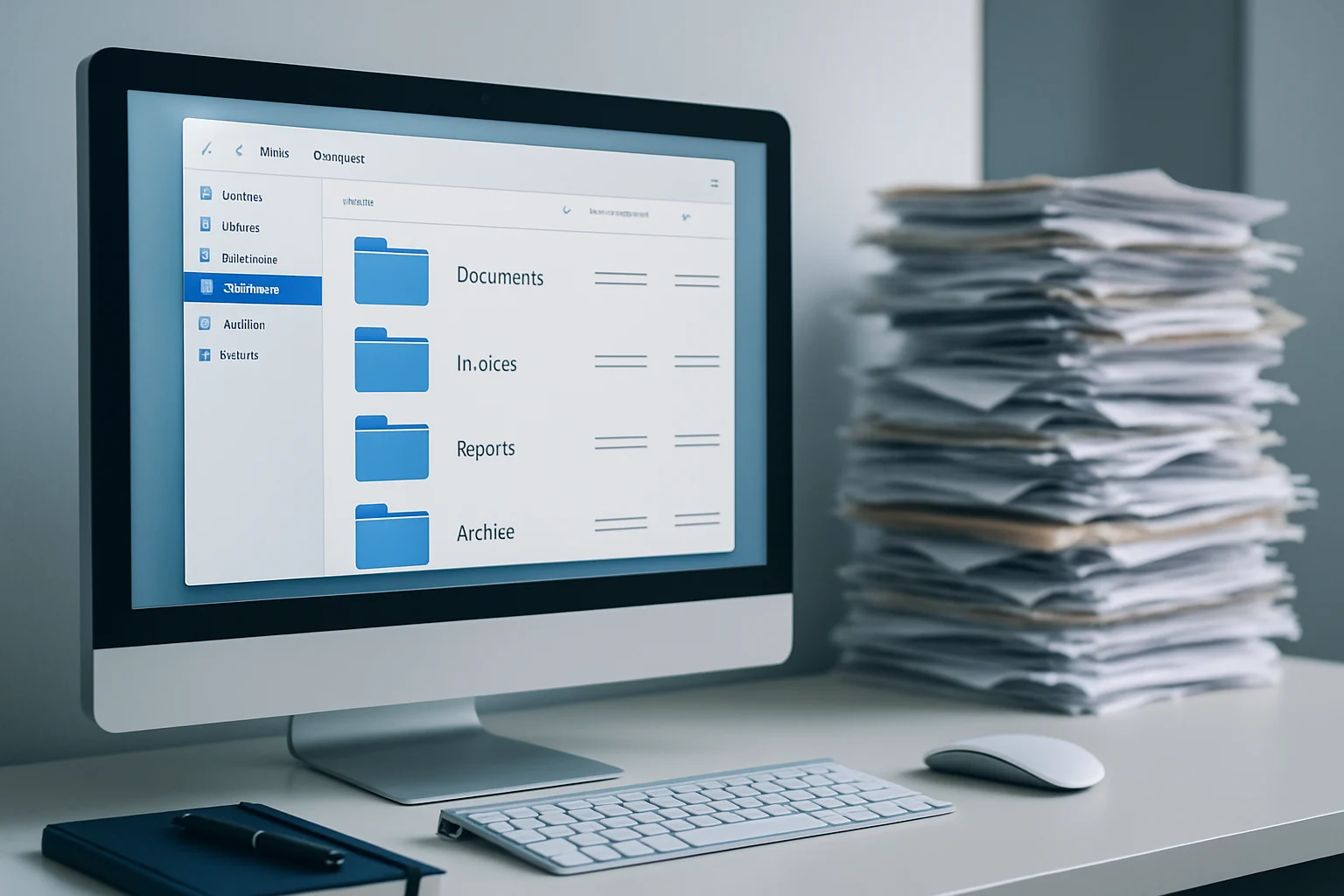
Stop Losing Important Documents: 7 Secrets for Flawless Digital File Management.
In today’s fast-paced digital landscape, misplacing or losing documents isn’t just an inconvenience. It can be a costly setback. According to intelligentsme.tech UK businesses are estimated to lose over £5.3 billion since 2019 due to data loss, impacting productivity and revenue. At DocR, we understand the critical importance of effective digital document management. Drawing from our expertise, here are seven essential strategies to ensure your digital files are always at your fingertips.
1. Embrace a Centralised Document Management System (DMS)
A centralised DMS serves as the backbone of efficient document handling. It streamlines storage, retrieval, and collaboration, reducing the time employees spend searching for files. In fact, 46% of employees report difficulties in locating necessary information due to scattered storage systems
2. Implement Robust Backup and Recovery Protocols
Data loss isn’t just about accidental deletions; it’s about preparedness. Alarmingly, 40% of SMEs don’t back up their data at all, and of those that do, 40-50% find their backups are not fully recoverable . Regular, automated backups and tested recovery plans are essential to safeguard against unforeseen data loss.
3. Standardise File Naming Conventions
Consistency is key. A standardised naming convention ensures that files are easily identifiable and retrievable. Without it, employees might spend unnecessary time deciphering file contents, leading to inefficiencies and potential errors.
4. Control Access with User Permissions with digital file management
Not every employee needs access to all documents. Implementing role-based access controls ensures that sensitive information remains secure and reduces the risk of accidental modifications or deletions. DocR’s DocLibrary has excellent features if you need to regain control of documents and business information.
5. Regularly Audit and Cleanse Your Digital Repository
Over time, digital clutter can accumulate, leading to storage inefficiencies and confusion. Regular audits help identify redundant or obsolete files, ensuring your repository remains organised and relevant.
6. Train Staff on Best Practices
Technology is only as effective as its users. Regular training sessions ensure that staff are aware of the latest protocols, tools, and best practices in document management, fostering a culture of accountability and efficiency.
7. Monitor and Adapt to Technological Advancements
The digital landscape is ever-evolving. Staying updated with the latest document management technologies ensures that your systems remain efficient, secure, and compliant with current standards.
Effective digital file management is not a luxury, it’s a necessity. By implementing these seven strategies, businesses can enhance efficiency, ensure data security, and reduce the risk of costly errors. At DocR, we’re committed to helping businesses navigate the complexities of document management. Our solutions are tailored to meet your unique needs, ensuring that your documents are always secure, accessible, and organised.
Ready to revolutionise your document management? Contact us today to learn how we can support your business’s digital transformation.




